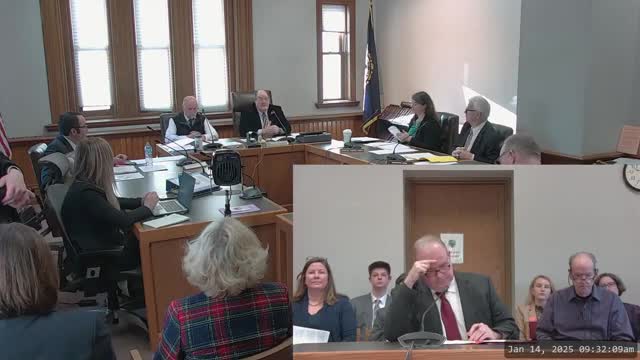Senate hearing on bill to apportion New Hampshireelectoral votes by congressional district draws split testimony
Get AI-powered insights, summaries, and transcripts
Subscribe
Summary
Senate public hearing on SB 11 proposed assigning two statewide electoral votes plus one per congressional district; sponsor said it would better reflect voterswill while voting-rights and good-government groups urged caution or opposition.
Senator Bill Gannon, sponsor of Senate Bill 11, told the Senate Committee on Election Law and Municipal Affairs that SB 11 would award two electoral votes to the statewide winner and allocate the remaining electoral votes to the winners in each congressional district.
"SB 11 will ensure that New Hampshire's electoral college vote apportionment is the most representative of the will of the people," Senator Bill Gannon said in his presentation to the committee.
The bill drew a mix of support and opposition during the public hearing. Liz Centarelli, president of the nonpartisan League of Women Voters of New Hampshire, urged the committee to oppose the bill and warned of a potential increase in tied or disputed presidential elections if multiple states adopt proportional or district-based allocation. "It's very possible and research has shown this that if enough states use this kind of proportional voting, that it's much more likely for the final result to go to the House of Representatives for a decision," Centarelli said.
Ken Barnes and other commenters said a statewide popular allocation would be more democratic than dividing votes by congressional district and raised concerns that district-based allocation could be manipulated by how district lines are drawn. Representative Alvin See, speaking in opposition, argued the change would weaken small-state protections in the Electoral College.
Committee members asked whether the sponsor intended the measure to be partisan. Senator Gannon said the goal is to "reflect the will of the people" and described the proposal as bipartisan in potential effect: "It could help either party."
The sponsor and questioners also discussed whether district-based allocation would attract more presidential campaigning to parts of New Hampshire. Gannon cited recent elections and said separate district votes could make candidates visit district areas late in campaigns if a single electoral vote was competitive.
The public record taken at the hearing showed more public opposition than support: the sign-in and online tallies cited by the chair recorded two in support and 71 opposed online, with additional sign-in oppositions.
Why it matters: SB 11 would change how New Hampshire's four electoral votes are assigned in presidential contests and could affect campaign strategy and outcomes. The committee record shows substantive disagreement over whether district allocation better represents voters or risks partisan manipulation through districting.
Looking ahead: The committee held a public hearing and received written testimony; no final action or committee vote on SB 11 was recorded in the transcript.
